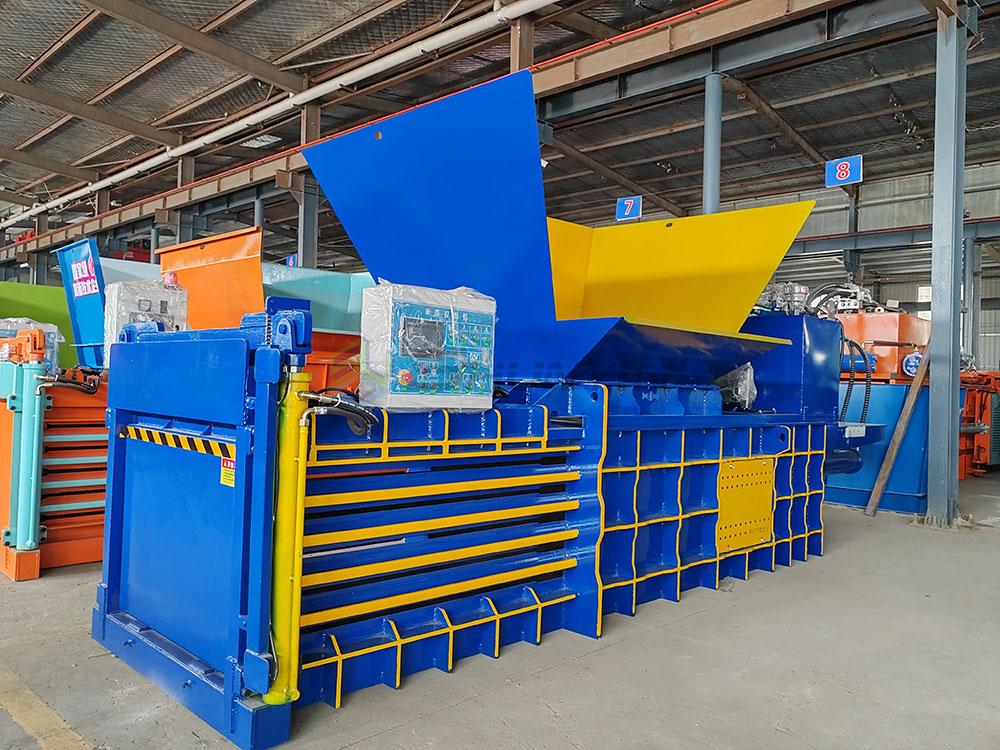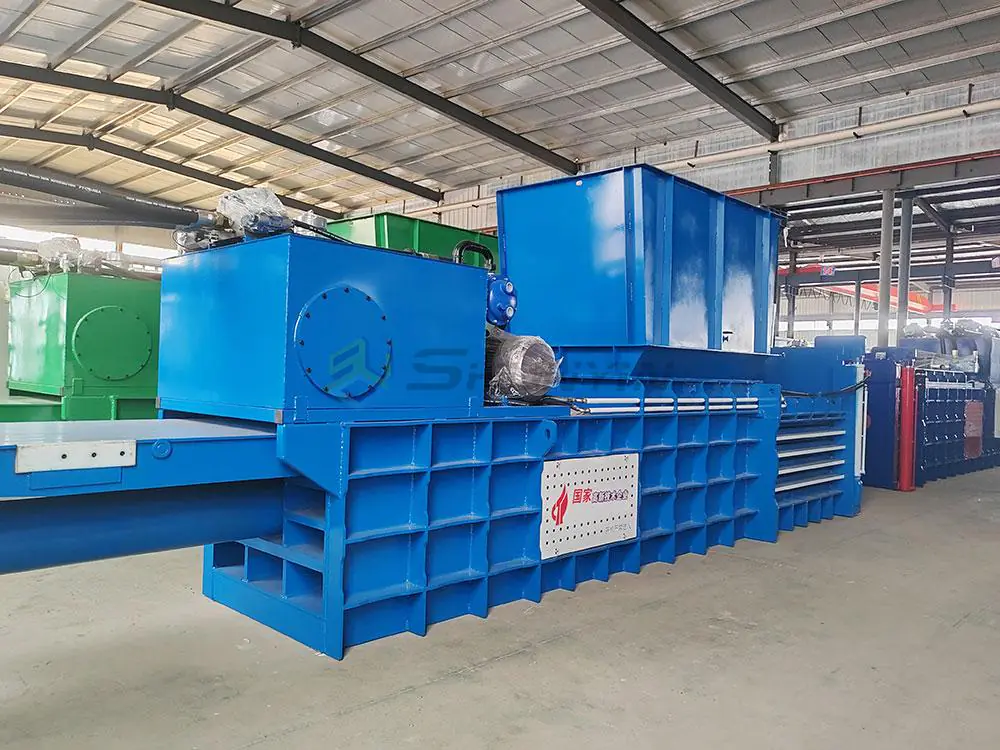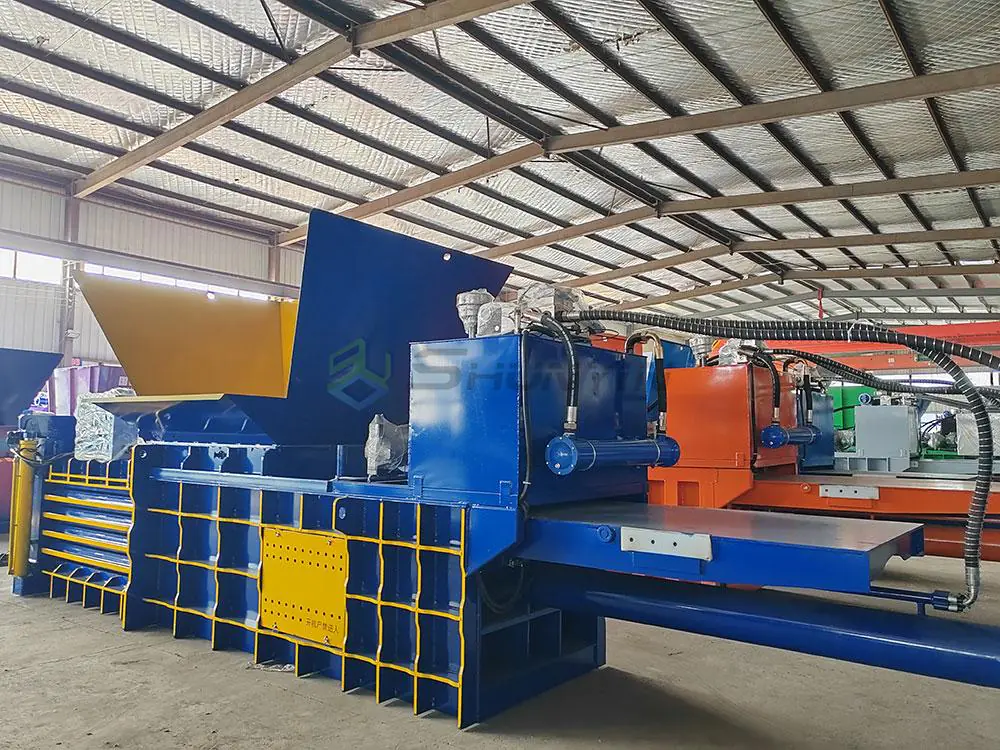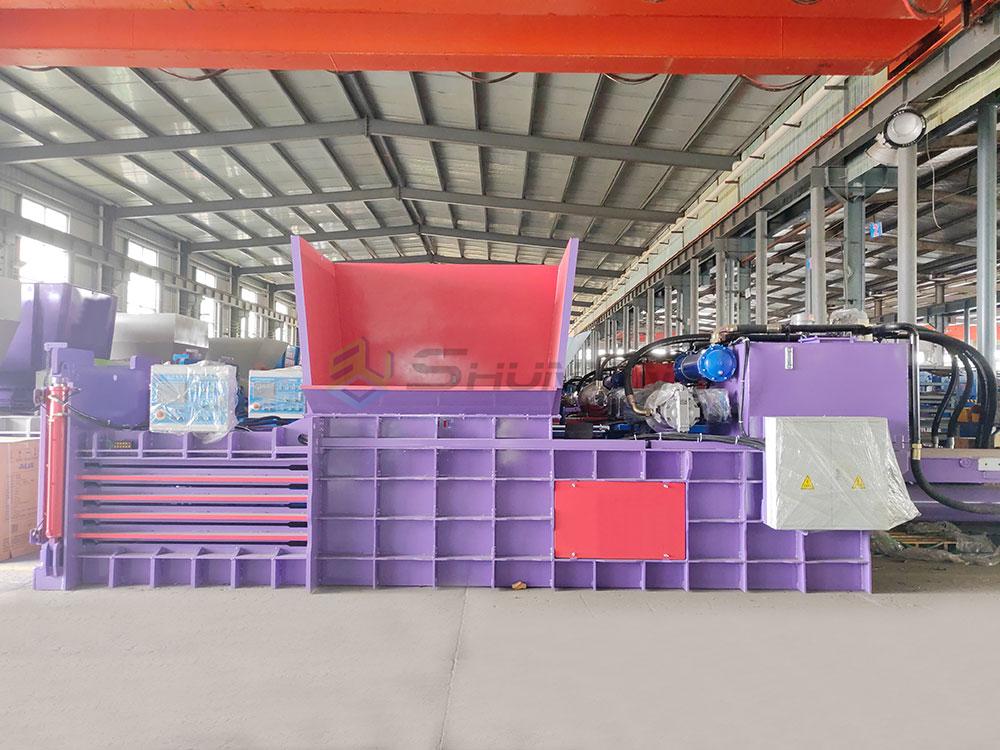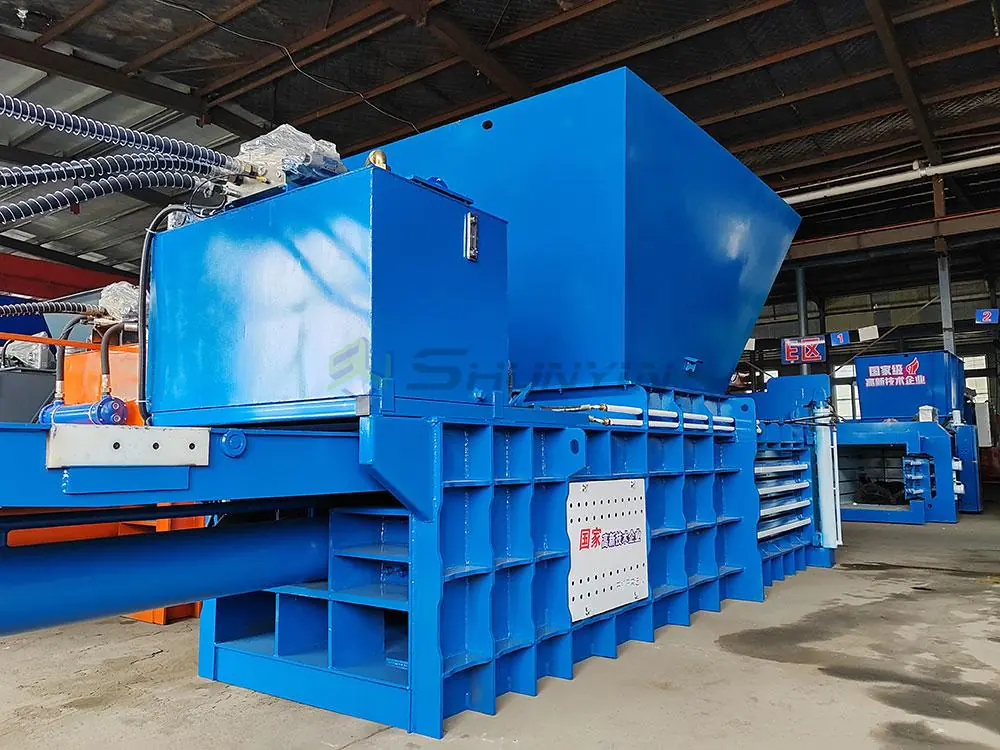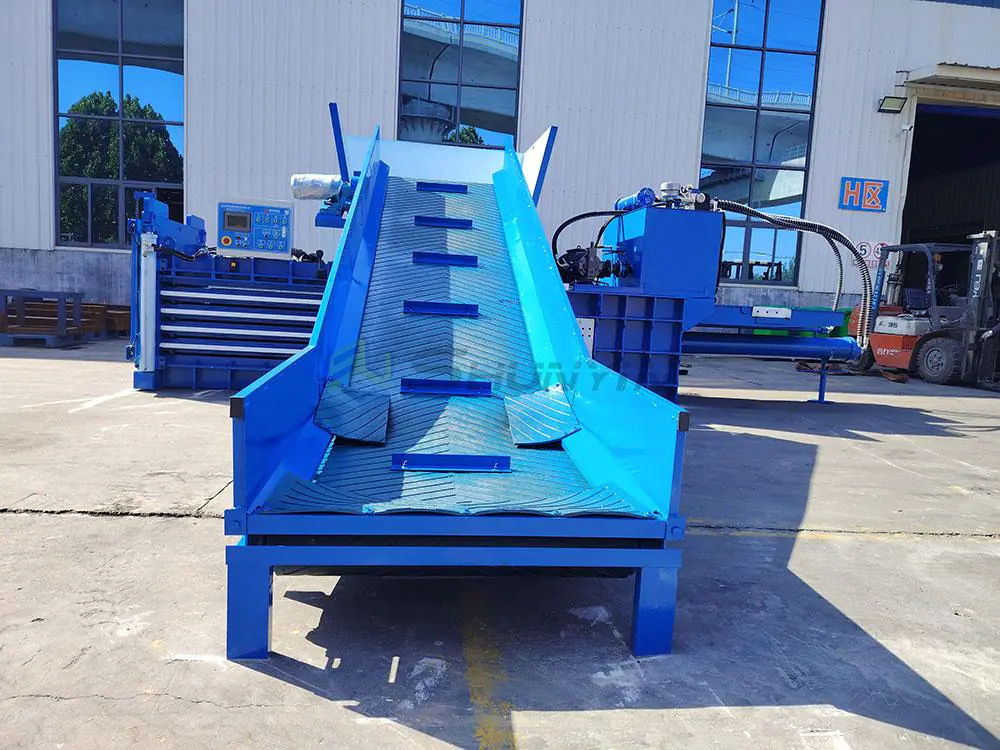
Horizontal hydraulic balers are essential machines for industries dealing with large volumes of recyclable materials. Many buyers look to China for high-quality, competitively priced balers. So, where exactly can you purchase these machines, and what factors should you consider when making a purchase?
You can buy horizontal hydraulic balers from Chinese suppliers through several platforms:
- Alibaba – A popular B2B marketplace with a wide range of suppliers.
- Made-in-China – Another platform connecting buyers with manufacturers.
- Trade Fairs & Exhibitions – Meet manufacturers directly at industry events like the Canton Fair.
- Direct Supplier Websites – Many manufacturers, like Jining Shunyin Machinery, offer direct inquiries on their sites.
- Global Sources – A platform for verified suppliers and product certifications.
Finding the right supplier is crucial to ensuring you get the best quality baler for your business. While Chinese suppliers offer a wide range of options, there are certain things to consider, such as purchasing platforms, quality assurance, and customization possibilities. Let’s explore where to buy horizontal hydraulic balers and how to navigate the process.
What is the average price of a baler?
The price of a hydraulic baler can vary based on several factors, such as the type, features, and size of the machine. It’s important to understand the pricing structure before making a purchase.
The average price of a horizontal hydraulic baler ranges from $5,000 to $20,000, depending on its capacity, features, and customization options. Basic models tend to be less expensive, while fully automated or highly customized balers can cost more.

The price of hydraulic balers can be influenced by several elements, including production volume, material handling capacity, and the specific hydraulic features integrated into the system. Let’s break down the factors that determine the pricing of horizontal balers.
Factors that affect the price of a baler
| Feature | Price Impact |
|---|---|
| Bale Capacity | Larger capacity = Higher price |
| Hydraulic system complexity | Advanced systems = Higher cost |
| Customization (features) | Customization adds $1,000-$5,000 |
| Automation (feeding and ejecting) | Automation can increase price by $2,000-$5,000 |
| Material type (cardboard, plastic, etc.) | Some materials require specialized systems, increasing price |
Pricing based on machine features
Basic models that only offer manual feeding and simple hydraulic presses will be on the lower end of the price range. On the other hand, more advanced balers with automatic feeding, higher capacity, and specialized features for specific materials will be priced at the higher end. When looking for suppliers, keep in mind the price variations based on these features.
What is the price of an automatic baler?
Automatic balers are designed to streamline the baling process by automatically feeding and ejecting materials. These machines are particularly useful for high-volume industries and those that need continuous processing.
Automatic balers generally cost more than manual or semi-automatic balers. Prices for automatic horizontal hydraulic balers typically range from $10,000 to $25,000, depending on features like bale size, automation levels, and custom configurations.

Automatic balers save significant time and labor costs, but they also require more advanced technology and a larger investment. The price can be influenced by the level of automation and the materials you plan to process. Let’s take a closer look at the pricing breakdown for automatic balers.
Pricing factors for automatic balers
| Feature | Price Impact |
|---|---|
| Automatic Feeding System | Adds $3,000-$5,000 |
| Automated Ejection System | Adds $2,000-$4,000 |
| Bale Size (large or small) | Larger bales = Higher cost |
| Control Panel (advanced systems) | Can add $3,000-$6,000 |
Why automatic balers cost more
Automatic balers are designed for efficiency, and the systems that handle feeding, compressing, and ejecting materials are highly specialized. These systems can be complex and expensive to install. However, for businesses processing large quantities of recyclable materials, the investment can pay off in the form of reduced labor costs and faster processing speeds.
What is a hydraulic baler?
A hydraulic baler is a machine that uses hydraulic force to compress various materials into dense bales. These machines are widely used in industries such as recycling, waste management, and manufacturing.
A hydraulic baler uses hydraulic pressure to compact materials such as paper, plastic, and metals into bales. The hydraulic system provides the force needed to compress the materials into tightly bound shapes, which are then easier to store and transport.

Hydraulic balers are essential for industries that handle large volumes of recyclable materials. By utilizing hydraulic force, these machines offer superior compacting capabilities compared to manual or mechanical systems. Let’s explore the working principles of hydraulic balers and their role in different industries.
Key components of a hydraulic baler
- Hydraulic Pump: Provides the necessary force for compression.
- Pressing Chamber: Where materials are compacted.
- Ejection Mechanism: Helps in ejecting the completed bales.
- Control System: Allows operators to set and adjust baling parameters.
The hydraulic process in balers
Hydraulic balers are favored for their ability to apply consistent and powerful force. The press chamber is filled with material, and the hydraulic system applies pressure to compact the material into the desired bale shape. After compaction, the bale is bound with wire or plastic straps before being ejected from the machine.
What is a horizontal baler?
A horizontal baler is a type of hydraulic baler designed to handle larger volumes of materials. Unlike vertical balers, which are ideal for smaller spaces and lower capacities, horizontal balers are more versatile and suited for high-volume operations.
A horizontal baler is a machine that compresses materials such as paper, plastic, and metal into bales using horizontal force. These machines are often more complex and customizable than vertical balers, making them ideal for large-scale recycling or manufacturing businesses.

Horizontal balers offer several advantages over vertical balers, including higher throughput and better material handling capabilities. Their design allows for larger, more efficient processing of materials, making them a popular choice for industries with high production demands. Let’s delve deeper into the workings and customization options of horizontal balers.
Advantages of horizontal balers
| Feature | Benefit |
|---|---|
| Larger Bale Size | Suitable for larger material volumes |
| Customizable Features | Tailored to specific processing needs |
| High Throughput | Ideal for high-volume industries |
| Space Efficiency | Can be placed in more open spaces |
Customization of horizontal balers
Horizontal balers are highly customizable, allowing users to adjust bale sizes, processing speeds, and even feeding systems. Whether you need a baler that handles cardboard, plastics, or metals, you can find a supplier that offers tailored solutions. However, customization often leads to a longer production time, so buyers should plan accordingly when placing an order.
Conclusion
You can purchase horizontal hydraulic balers from Chinese suppliers through various platforms, such as Alibaba, trade exhibitions, or direct factory orders. Prices vary depending on the baler type, features, and customization options, with basic models starting at around $5,000 and automatic versions reaching up to $25,000. To find the best deals, it’s essential to consider not only the price but also the supplier’s reliability, after-sales support, and the specific needs of your business.


